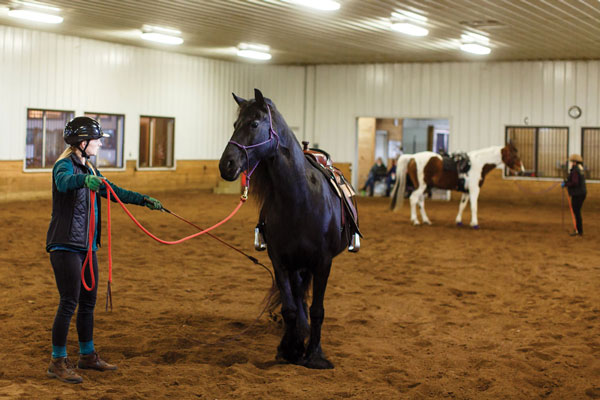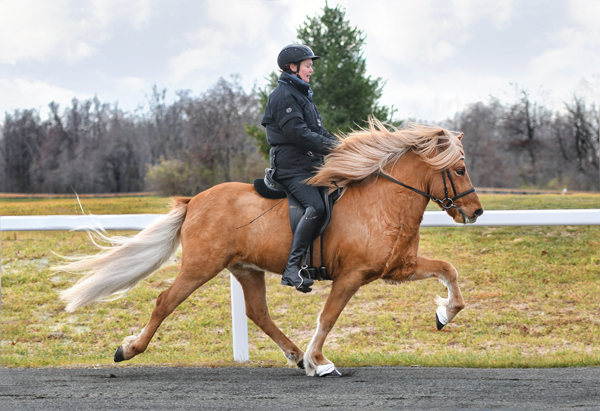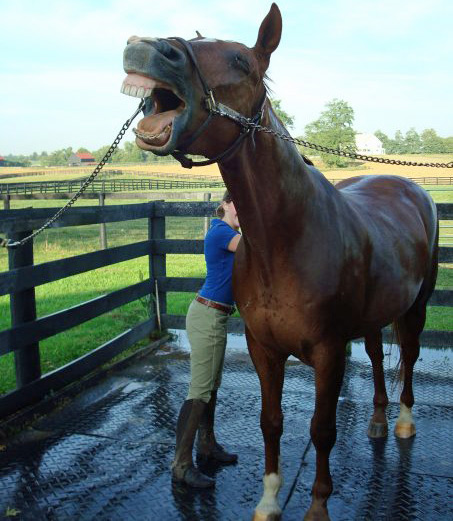Anyone can benefit from going to a horse clinic. One of the advantages is the quantity of information you will be exposed to; you’ll be bursting with new riding or training techniques and want to rush home to put them to use with your horse.
Clinics are also great for people who have limited access to a trainer. A clinic can be a “boot camp” opportunity to learn a multitude of new skills and concepts that will keep you busy practicing at home for quite some time.
Lasting anywhere from a few hours to several days, clinics cover a wide range of topics. If you can think of a discipline or riding style, there’s a clinic for it.
Types of Horse Clinics
There are clinics for riders who like to compete and as well as for those who enjoy riding for personal enjoyment. Some focus on ground-related activities, while others give riders a chance to improve their talents in the saddle.
Clinics can also be level-specific, catering to either advanced horse people with years of experience or those seeking guidance on a fundamental level. If you’re participating with your horse, make sure the clinic you choose is appropriate for his age and stage of training.
Some clinics are “horse-friendly” and invite a limited number of horses and riders/handlers to participate. Most clinics allow you to attend as an auditor if you don’t own a horse or if bringing your horse is impractical. Auditing is also the best way to familiarize yourself with the clinic environment before adding the complexities of traveling and attending with a horse.
If you want to work with a horse but don’t have one to bring, ask the clinic organizers if they have horses available to “rent.” There are also clinics that are spectator-centered that don’t require a horse to participate.
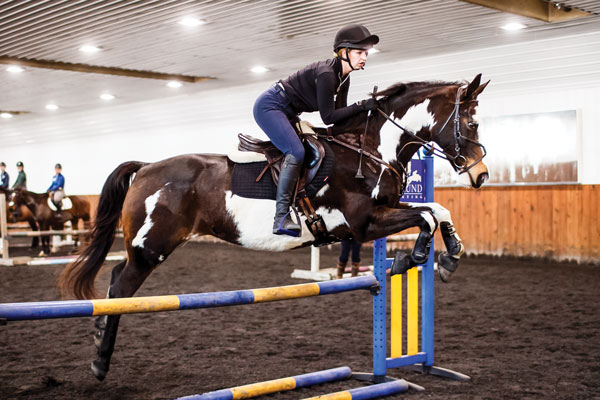
Choose your clinic level carefully. You don’t want to be overfaced and frustrated, but you also don’t want to be bored and get less help because other riders are more challenged. Photo by Shelley Paulson
Prior Preparation
Certified Horsemanship Association CEO Christy Landwehr, a veteran horsewoman, clinician, and clinic attendee, shares some words of wisdom for clinic goers.
“Attending an educational clinic for you and your horse can be very rewarding, but it can also be very disappointing,” she says. “Make sure that you do some preparation at home before you attend your first one. Work on teaching your horse to load and unload easily before it’s time to leave for the clinic so you’re not rushed, stressed, or late because your horse won’t get in the trailer. Also, make sure that your horse can tie to your trailer and just stand calmly eating from a hay net. Check your truck and trailer; they should be safe and in good working order.”
You could also have a certified instructor come to you, or travel to them (practice trips!), and take a couple of lessons ahead of time.
“This will give you insight into what you and your horse might need the most help with and which type of clinic would be best to attend,” Landwehr adds.
Make sure you’re ready to handle it if your horse gets excited or nervous at the clinic.
“The unexpected can happen, especially during large clinics with 20 horses and riders (or more) in the arena and lots of commotion. Oftentimes, there is only one trainer/clinician to guide you all,” she explains.
Some horses might be solid and steady, but others could be new to the clinic environment and behave unpredictably, lack confidence, and be very spooky. Be attentive and aware of your surroundings. You need to be responsible for your safety and your horse’s safety.
“Also, be prepared that the clinician may get stuck working with the weakest link and not have time to pay the same amount of attention to you and your horse, so choose the participant experience level carefully,” says Landwehr. “Horsemanship clinics are a fun way to spend time with your horse. Just make sure you are picking a clinic that works best for you both and prepare as best you can ahead of time.”
Choosing a Clinician
Once you’ve chosen your preferred discipline, area of interest, and level of difficulty, the next step is to decide who you want to learn from. Most clinic advertising will state what level of horse and rider/handler their clinics are best suited for, but if that information isn’t readily available, give the organizers a call.
Every trainer has their own philosophy, experience, areas of expertise, and teaching style. When you’re going through the selection process, consider clinicians who fit your sensibilities and inspire you.
Another option is to choose someone who pushes you outside of your comfort zone and challenges you—in a safe and confidence-building way. If you’re uncertain if a particular clinician is the right choice, attend one of their clinics as spectator (auditor) before you commit to participate with your horse.
Reaching out to others through social media is another way to gain insight into whether or not the clinician you’re considering is a good fit.
Setting Up for Success
Attending a clinic can be a simultaneously grueling, enlightening, stressful, exciting and inspirational experience. Make sure you have everything you need to keep yourself and your horse comfortable and your stress levels as low as possible.
Also consider your horse’s condition and endurance, and yours as well. You may spend several hours on your feet or be in the saddle longer than either you or your horse are used to. It’s perfectly fine to take a break if you or your horse needs one. Offer your horse hay and water whenever possible. Get yourself a snack any time your blood sugar starts to drop—intense focus and concentration cause your brain (and your horse’s) to burn extra calories.
Finally, be sure to ask any questions you have. Now isn’t the time to be shy! You’re there to learn, and we all receive and process information in our own unique way. You’re there to be taught, so make sure you’re getting your money’s worth.
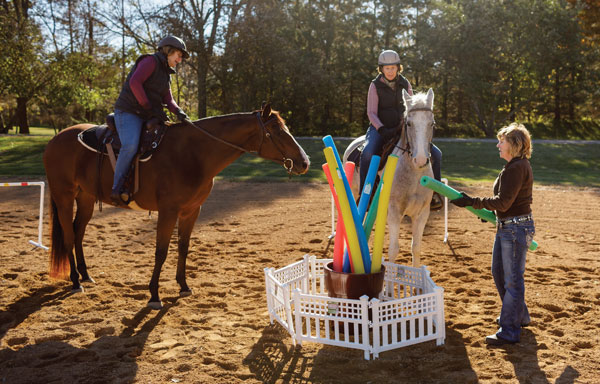
Research whether past attendees’ clinic reviews sound like something you’d enjoy. Photo by Shelley Paulson
Be Your Horse’s Advocate
When you’re dealing with horses in an unfamiliar environment, there may be some excitement and frazzled nerves (horse and human alike). Keep your eyes and ears open so you have time to respond if a problem arises, such as a horse that behaves reactively.
If you notice someone struggling with their horse, kindly give them the space they need to sort things out. If your horse is the one having a hard time, put a safe distance between you and the other participants.
If you ever feel pressured to do something you aren’t ready for, it’s perfectly OK to say no. That isn’t always easy to do, especially in a social setting. However, you also don’t want to end up suffering unpleasant consequences because you didn’t stand up for yourself.
The same holds true for your horse. If you see your horse experiencing anything that seems traumatic or painful, it’s up to you to put a halt to it. It’s your job to safeguard your horse’s safety and welfare to ensure the clinic experience is a success and beneficial to both of you.
This article about getting the most out of attending a horse clinic appeared in the November/December 2021 issue of Horse Illustrated magazine. Click here to subscribe!

